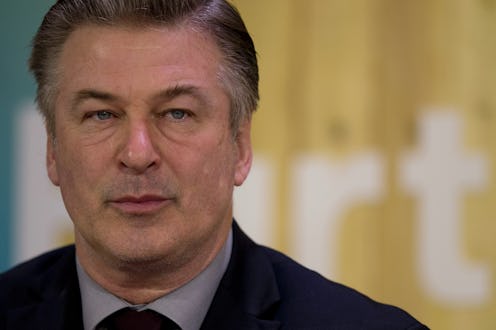On Tuesday, New York Public Radio's podcast Here's the Thing, hosted by actor Alec Baldwin, featured the Making a Murderer filmmakers, Moira Demos and Laura Ricciardi. In the midst of intense criticism over how Steven Avery is portrayed by the series and the selective inclusion evidence, Baldwin, a versed member of the film world himself who told the directors that he followed the show very closely, shifted the focus to the actual process and inspiration behind the hit series. Most importantly, the interview revealed the filmmakers' own opinions of people involved in the case, a viewpoint that wasn't directly voiced in the documentary series, which completely avoided third-person narration. Here are some of the main highlights from the behind-the-scenes accounts — including a revelation about how the filmmakers might vote if they were on Avery's jury.
Demos stressed that because they were students when she and Ricciardi first began filming, they had no money. In fact, she says that because they were technically borrowing money, they had "negative money." But the pair was equipped with a tool that transcended monetary value: They had time. She described the moment when she realized the monumental nature of Avery's case after reading a New York Times article about his conviction for the murder of Teresa Halbach the day before Thanksgiving in November 2005. The article was titled "Freed by DNA, Now Charged in New Crime." She characterized Avery as an "incredible window through which to look at our system."
"You know, if we followed this man's story, we would go from one extreme of the system to the other," she said.
After an initial round of filming in December 2005, Demos and Ricciardi decided to fully commit themselves, sublet their New York City apartment, and moved to Manitowoc County, Wisconsin, where they rented an apartment for the next two years. They were in it for the long run. Ricciardi added that though members of the county were suspicious of two filmmakers from a big city, local public media accepted their involvement in documenting the case. While discussing their experience in Manitowoc County, Ricciardi said that Milwaukee lawyer Stephen Glynn, one of Avery's attorneys, was among the most welcoming. According to Ricciardi, Glynn, who had a history with Steven after helping him in his post-conviction trials during the 1990s, told the filmmakers he felt as though Avery was truly innocent.
Steve Glynn expressed to us the actual heartbreak he felt when Steven was arrested in this new crime ... He knew what Steven himself and the Avery family had endured throughout Steven's wrongful imprisonment for 18 years.
Ricciardi continued to verge on sympathetic toward Avery's struggles as she elaborated on why he filed a $36 million lawsuit against the county in response to his wrongful conviction in 1985. She voiced Glynn's opinion that Avery was a humble man who was only continuing to seek money so that others aren't convicted of crimes they didn't commit.
He wasn't digging for gold, he was trying to prevent what happened to him and what happened to Penny Beernsten, the victim in the first case, from happening to anyone else.
The directors talked about their interactions with Avery but were careful to quote others when it came down to describing his actual demeanor. So, Baldwin cut to the chase and asked a winning question after Ricciardi and Demos mention that they visited Avery between eight and 10 times in the county jail. What did they themselves think of Avery based on their limited, but still ample interactions? Demos was first to address something rather unexpected. She said that upon meeting him, she was shocked that he was shorter than her 5-foot-5-inch stature. Fair enough. I definitely didn't see that coming either, even after watching all 10 episodes.
He had a big smile, he was very affable, he was very open, he was very gracious. And ... it appeared to us that this was somebody with a very simple value system, but a value system nonetheless.
Rapidly moving up the scale of controversial questions, Baldwin straightforwardly dropped the biggest question of all: He asked whether or not the directors believe Avery is guilty. When Demos responded by saying that she has unanswered questions, Baldwin got real. He asked how she would have voted if she was a member of the jury. She responded she would vote that they "haven't proved their case."
In other words, if Demos was a member of the jury, she would vote "not guilty." She stressed that her verdict is based on inconsistencies in the case and pointed out something particularly chilling and, in the end, reflective of the flaws within the criminal justice system: "There's no verdict of innocent in this country."
Check out the 'Making a Murderer' stream in the Bustle app for more on Steven Avery & Brendan Dassey's cases. Download it here.
Image: Netflix
